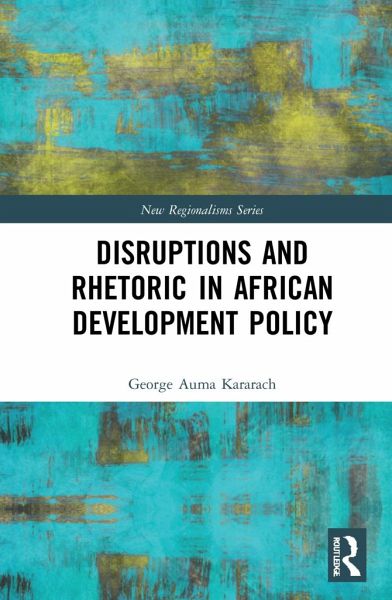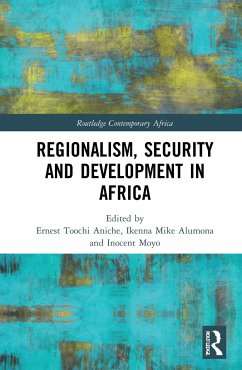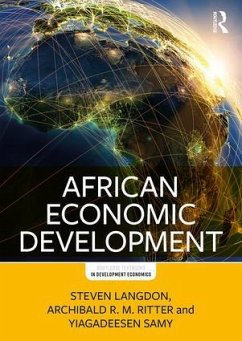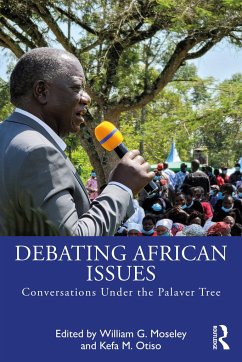
Disruptions and Rhetoric in African Development Policy
Versandkostenfrei!
Versandfertig in 6-10 Tagen
154,99 €
inkl. MwSt.
Weitere Ausgaben:

PAYBACK Punkte
77 °P sammeln!
The book examines the failures and some of the successes of Africa in its efforts to transform into a society where human security or development in the broadest sense is achieved.It is argued the African continent had, and will continue, to content with disruptions or change on its path to development. Development policy making in this regard, is an art of setting out strategies to build resilience and take advantage of disruptions or change in whatever format: political, economic, health, diplomatic, demographic or even environmental and climatic. The book discusses nine major disruptions in...
The book examines the failures and some of the successes of Africa in its efforts to transform into a society where human security or development in the broadest sense is achieved.
It is argued the African continent had, and will continue, to content with disruptions or change on its path to development. Development policy making in this regard, is an art of setting out strategies to build resilience and take advantage of disruptions or change in whatever format: political, economic, health, diplomatic, demographic or even environmental and climatic. The book discusses nine major disruptions in Africa's socio-economic life and the limits imposed by the rhetoric in development policy: exclusion and social inequality, environmental degradation and climate change, natural resources and poor beneficiation, trade and aid, food insecurity, demography and migration, pandemics and disease burden, conflict and criminality and technology and innovation.
The book is intended for intermediate students in African studies, Area Studies, Development Economics, Development Studies, Public Policy and Comparative Politics. In addition will be development practitioners working in developing countries, the UN system, multilateral development banks, donor agencies and regional economic communities in Africa.
It is argued the African continent had, and will continue, to content with disruptions or change on its path to development. Development policy making in this regard, is an art of setting out strategies to build resilience and take advantage of disruptions or change in whatever format: political, economic, health, diplomatic, demographic or even environmental and climatic. The book discusses nine major disruptions in Africa's socio-economic life and the limits imposed by the rhetoric in development policy: exclusion and social inequality, environmental degradation and climate change, natural resources and poor beneficiation, trade and aid, food insecurity, demography and migration, pandemics and disease burden, conflict and criminality and technology and innovation.
The book is intended for intermediate students in African studies, Area Studies, Development Economics, Development Studies, Public Policy and Comparative Politics. In addition will be development practitioners working in developing countries, the UN system, multilateral development banks, donor agencies and regional economic communities in Africa.













